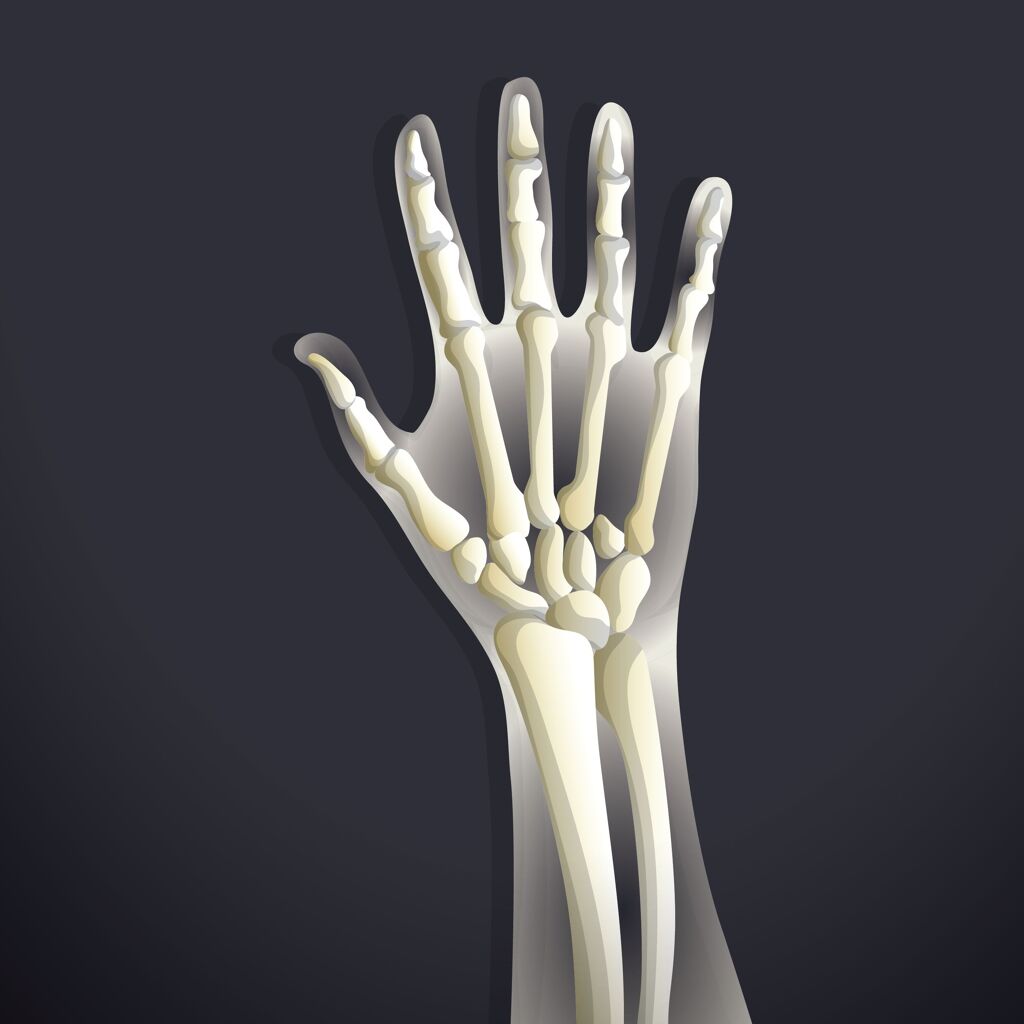PANS/PANDAS & Distinguishing Sudden Onset Symptoms In Children

Does your child have mysterious symptoms that came on suddenly after a step throat or other type of infection? Are you or the doctors struggling to understand the problem?
Then read on for details about PANS/PANDAS, a relatively new diagnosis for sudden onset symptoms in children, following an infection of some kind.
In this blog on PANS/PANDAS, you will learn:
- What is PANS/PANDAS
- What are the symptoms
- What causes PANS/PANDAS
- Testing for PANS/PANDAS
In our next blog, we will discuss Treatment for PANS/PANDAS and how we can help. Please follow us for the next blog!
What is PANS/PANDAS?
A patient with PANS/PANDAS has a sudden and dramatic change in personality, symptoms of OCD (obsessive compulsive disorder), anxiety, tics or other abnormal movements, a decline in math and handwriting abilities, sensory issues, restrictive eating and possibly more symptoms.
PANS is Pediatric Acute-onset Neuropsychiatric Syndrome. It is the abrupt and sudden onset of OCD- (obsessive compulsive disorder)- like symptoms in a child, along with neuropsychiatric symptoms like anxiety, depression or irritability. Food restriction by the child may also be involved. PANS is thought to be triggered by infection.
PANDAS is Pediatric Autoimmune Neuropsychiatric Disorder Associated with Streptococcal Infections. It is a subset of PANS. PANDAS is triggered by a streptococcal infection (strep throat). PANS is associated with other infections, such as influenza (the flu), Lyme disease and now Covid-19.
PANS/PANDAS Statistics
- PANS/PANDAS was first identified in 1998 (Rea I, 2021).
- It describes children with sudden onset of OCD (obsessive compulsive disorder) and tic disorders triggered by a strep, or other, infection.
- Children diagnosed with PANS or PANDAS are typically between 1 – 13 years old (Texas PANS Advisory Council, 2021). The average age is 6.2 years old (Rea I, 2021). 60% of diagnoses are for children between the ages of 4 – 9 (Texas PANS Advisory Council, 2021).
- The incidence of PANS/PANDAS is not really known. The PANS Research Consortium estimates 1-2% of children are affected by PANS (Texas PANS Advisory Council, 2021). Other sources say 1 in 200 children develop PANDAS (Texas PANS Advisory Council, 2021).
- Boys are more frequently affected and outnumber girls by 2:1 (Texas PANS Advisory Council, 2021).
- There is a clear difference between PANDAS and PANS (Rea I, 2021). Children with PANS typically have the symptoms of irritability, aggression and food restriction more frequently than with PANDAS (Rea I, 2021).
What are the Symptoms of PANS/PANDAS?
The symptoms of PANS/PANDAS may vary. They typically include a change in personality, mood changes, separation anxiety, worsening handwriting, insomnia, frequent need to urinate, bedwetting and others. Symptoms seem to just start ‘out of the blue’.
Both PANDAS and PANS diagnoses include:
- Tics, which can be verbal (like grunting) or physical (jerking the head or arms/ legs)
- Frequent changes in mood
- OCD-like symptoms; repetitive actions, fear of germs, habits and rituals that must be followed to avoid anxiety and panic
- Sudden onset of intense anxiety
- Depression, possibly suicidal thoughts, uncontrollable crying or fear
- Rage or inability to control anger that includes breaking and throwing things
- Sleep issues, lack of sleep, excessive fatigue
- Bedwetting
- Restrictive eating or avoidance of food, weight loss, especially in PANS
- Poor coordination, an unusual gait, worsening handwriting
- Behavioral abnormalities and personality changes
- Sensory problems, sensitivity to light and sound
- Worsening academic skills and mental regression
- Symptoms develop as a sudden onset after an infection
How do PANS/PANDAS develop?
Both PANS and PANDAS present after an infection. Post-infection, the child develops an abrupt set of obsessions, compulsions or tics. 80% of PANS/PANDAS patients have neurologic inflammation and/or post-infection autoimmunity (Texas PANS Advisory Council, 2021).
The infection seems to cause brain inflammation. The inflammation is a result of the immune system mistakenly attacking healthy brain cells. This leads to an autoimmune attack on the brain that affects the central nervous system.
PANDAS affects children with ‘strep’ or ‘strep throat’. In PANS, the trigger can be another type of infection. It is not yet clearly understood how these syndromes develop (Rea I, 2021).
Autoimmune Component:
An infection triggers PANS/PANDAS. It activates the immune system. The resulting immune response causes the release of chemical molecules that increase inflammation.
During the strep infection, the immune system produces antibodies against the strep infection proteins. The autoimmune process in PANDAS is thought to happen when these normal antibodies to strep start to treat brain proteins as targets. Or the antibodies bind to neurons in the brain which causes the sudden onset of OCD symptoms (Rea I, 2021).
The autoimmune attack does not destroy healthy brain tissue. Instead, the antibodies bind to self-tissue and become autoantibodies. An autoantibody is an antibody produced by the immune system that is directed against one or more of the individual’s own proteins. The autoantibodies basically mistakenly attack the body, instead of the infection. Many autoimmune diseases are associated with autoantibodies.
In PANS/PANDAS, the autoantibodies bind to different regions of the brain, causing abnormal signaling events between neurons. These abnormal signaling events between neurons, induced by the autoantibodies, cause neurological problems. These include cognitive and intellectual regression.
It is the basal ganglia region of the brain that is targeted by the autoantibodies and suffers the autoimmune attack. The basal ganglia region of the brain is important for learning and memory. It is responsible for motor control and learning, behaviors and emotions. This is why children lose writing or math skills that they have already learned and develop psychological symptoms like OCD, tics, anxiety or others.
MRIs have been taken of the brains of PANDAS patients. The neuroimaging studies show antibody-related inflammation of the basal ganglia of the brain, which happens after strep and leads to the development of OCD or tics (Prato A, 2021). Other brain MRIs suggest an inflammatory process involving the central nervous system and the basal ganglia (Prato A, 2021).
To Read About Blog Topic, Scroll Down
Want To Work With Our Clinic?
Do you have a chronic or mystery illness that no one has been able to help you with? Are you simply wanting to re-connect with a healthier version of yourself? It’s Time To Finally Feel Better!
What is the Mechanism Behind PANS/PANDAS?
Genetic Component:
The research is somewhat mixed, but it is thought that there is a genetic component to PANS/PANDAS.
- In one study, 45% of relatives of PANS/PANDAS patients, including parents, siblings, grandparents, and uncles, reported neuropsychiatric disorders (Rea I, 2021). These relatives had bipolar disorder and OCD, intellectual disability, schizophrenia, anxiety disorders, language delay and post-partum depression symptoms.
- Relatives also suffered from metabolic disorders (21% in total), that included diabetes and thyroid changes, and cardiovascular issues (11%) such as high blood pressure and heart attack (Rea I, 2021). There was a higher percentage of parents with metabolic disorders in the PANS group compared to the PANDAS group (Rea I, 2021).
- Some studies show a family history with high rates of maternal autoimmunity or family members with OCD/tics or other neurological disturbances (Rea I, 2021).
- In other studies, there were only a few cases of parents with autoimmune diseases (Rea I, 2021).
PANDAS & Gut Health:
Research is looking at changes in the gut bacteria and its possible link to neuroinflammation, i.e., inflammation in the brain, and the development of psychiatric disorders (Prato A, 2021). We know that changes in gut microbial biomarkers can lead to a pro-inflammatory state in the gut and brain, via the gut – brain axis.
One study looked at the gut microbiome in PANDAS patients. It showed that children with PANDAS have high circulating levels of lipopolysaccharide (LPS) and other inflammatory molecules. LPS are inflammatory molecules that are produced in the gut by bacterial infections or by pathogenic gut bacteria. LPS are inflammatory and can kick start the process of neuroinflammation. Changes in the gut microbiome may represent one of the factors in developing PANDAS (Prato A, 2021).
Brain Inflammation:
Brain scan imaging has been done on the brain of patients with PANS/PANDAS. Inflammation is seen on the basal ganglia and amygdala parts of the brain in these children (Rea I, 2021). We know that inflammation in the brain, or neuroinflammation, causes problems with cognition and cognitive performance.
Diagnosing PANS/PANDAS
It can be challenging to confirm the diagnosis of PANS/PANDAS (Prato A, 2021). It is often a diagnosis of exclusion. This means other diseases or conditions are tested for and ruled out before settling on a diagnosis of PANS/PANDAS.
To diagnose PANS/PANDAS requires a complete medical and psychiatric history. The patient should have a thorough physical exam, a complete neuropsychological assessment and lab tests. Specific blood tests should be done to rule out other suspected medical explanations for neuropsychiatric symptoms.
Lab Tests
There is currently no biomarker to diagnose PANS/PANDAS. Patients should have the standard blood tests: CBC (complete blood cell count), CMP (complete metabolic panel) and inflammatory markers such as C-reactive protein (CRP) (Prato A, 2021).
There is a test called the Cunningham Panel. This is a set of blood tests to measure immune dysfunction in neuropsychiatric conditions associated with an infection trigger (Prato A, 2021). The clinical reliability of the Cunningham Panel in diagnosing PANS or PANDAS is somewhat controversial so it is not universally used (Prato A, 2021).
For PANDAS, it is important to look for evidence of recent or current strep infection, confirmed with the positive swab from the throat (Prato A, 2021).
In case of PANS, other infectious triggers should be considered. Mycoplasma pneumoniae (a bacteria that causes mild infections of the respiratory system, specifically the throat, lungs, windpipe), viruses (influenza or Epstein–Barr) and Borrelia burgdorferi (Lyme disease) are potential infectious triggers and should be tested (Prato A, 2021). There have recently been cases of PANS onset in patients with a COVID-19 infection (Prato A, 2021). Therefore, COVID-19 infection should also be considered in diagnosing PANS.
Summary
- PANS/PANDAS are both a sudden onset condition that develops in childhood, post a step or other type of infection.
- PANS stands for Pediatric Acute-onset Neuropsychiatric Syndrome.
- PANDAS stands for Pediatric Autoimmune Neuropsychiatric Disorder Associated with Streptococcal Infections.
- Symptoms of PANS/PANDAS include drastic mood changes, anxiety, OCD, tics, anger issues, sleep issues and a worsening in academic skills, plus potentially many others.
- It is thought that PANS/PANDAS has a genetic component, an autoimmune component and involves impaired gut health and neuroinflammation in the brain. It is a condition in which the immune system overreacts to the initial infection and causes an autoimmune reaction. This creates inflammation in the brain and causes many neuropsychiatric symptoms.
- Diagnosing and testing for PANS/PANDAS can be tricky. It is important to identify the presence of an infection and antibodies to that infection.
- It is often a diagnosis of exclusion, meaning that other similar conditions must be ruled out to settle on a diagnosis of PANS/PANDAS.
In our next blog, we will examine how PANS/PANDAS can be treated naturally with plenty of steps you can take on your own.
** Please continue following us for our next Blog on treating PANS/PANDAS. **
As always, please get in touch with us. If you or someone you know is struggling with cognitive or neurological symptoms, contact our clinic today. We can work on any issue(s) and improve your health. Book a free health evaluation call with us today, to see how we can help you with your concerns. We can answer your questions and help you book an initial consult with one of the functional medicine doctors in our clinic.
Are You Suffering From A Chronic Illness?
Does your current health situation look like this…
- Do you feel that you have tried many things and either nothing works, or the treatment does not hold?
- Have you been told that there is nothing that can be done to reverse your illness and you just need to manage symptoms?
- Does your illness impact your work, your family, your happiness and your social life?
We specialize in finding answers and solutions for complicated chronic illness when people feel like they have tried everything. If this sounds like you, book a free call with us to see if we are the right fit for your health goals.
Dr. Miles has spoken for the following organizations:
















